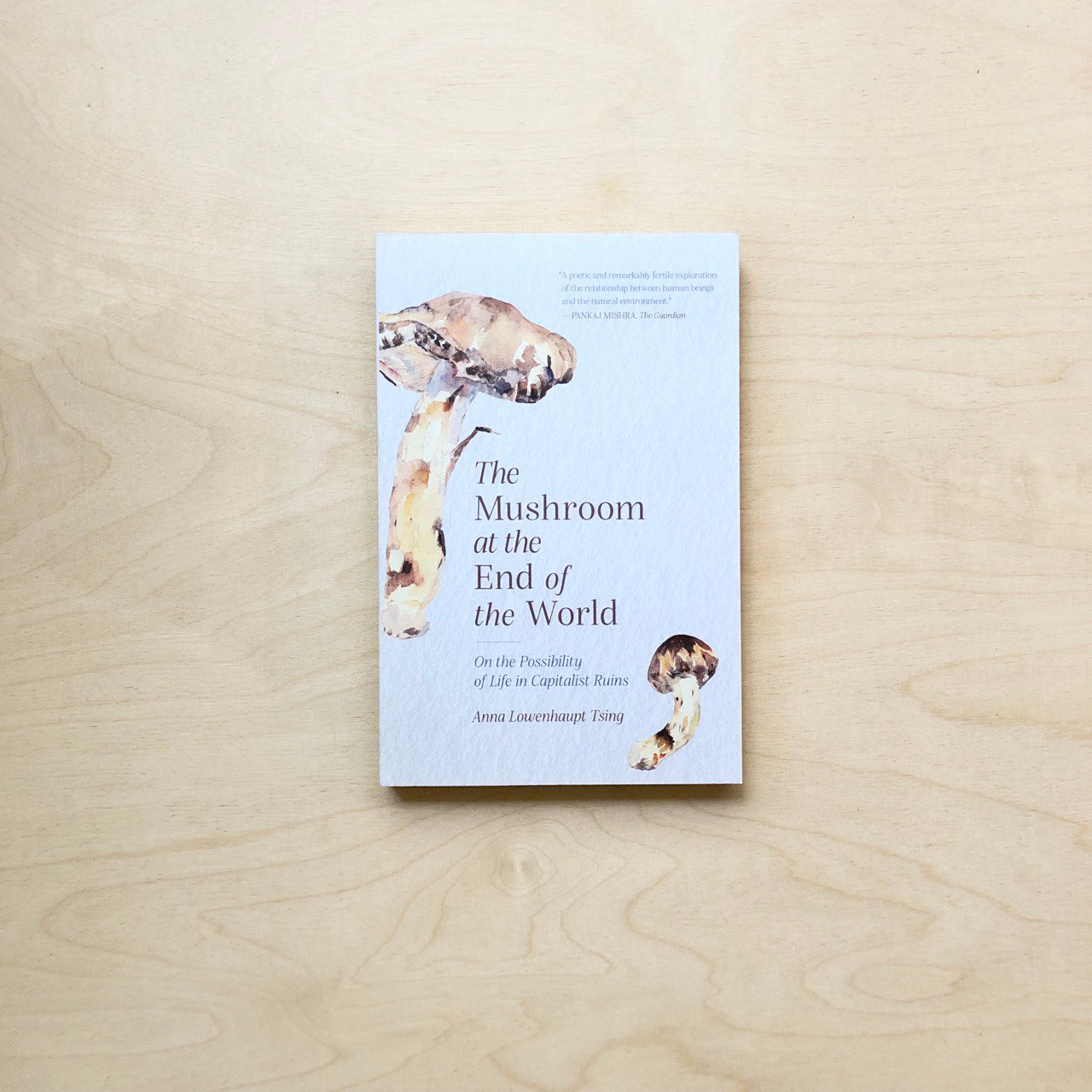The Mushroom at the End of the World - New Paperback edition
The Mushroom at the End of the World - New Paperback edition
Anna Lowenhaupt Tsing
Princeton University Press
2021
9780691220550Softcover
20.2 x 13.5 x 2.7
352 pages
Couldn't load pickup availability
Winner of the 2016 Victor Turner Prize in Ethnographic Writing Winner of the 2016 Gregory Bateson Prize Matsutake is the most valuable mushroom in the world—and a weed that grows in human-disturbed forests across the northern hemisphere.
Through its ability to nurture trees, matsutake helps forests to grow in daunting places. It is also an edible delicacy in Japan, where it sometimes commands astronomical prices. In all its contradictions, matsutake offers insights into areas far beyond just mushrooms and addresses a crucial question: what manages to live in the ruins we have made? A tale of diversity within our damaged landscapes, The Mushroom at the End of the World follows one of the strangest commodity chains of our times to explore the unexpected corners of capitalism. Here, we witness the varied and peculiar worlds of matsutake commerce: the worlds of Japanese gourmets, capitalist traders, Hmong jungle fighters, industrial forests, Yi Chinese goat herders, Finnish nature guides, and more. These companions also lead us into fungal ecologies and forest histories to better understand the promise of cohabitation in a time of massive human destruction. By investigating one of the world's most sought-after fungi, The Mushroom at the End of the World presents an original examination into the relation between capitalist destruction and collaborative survival within multispecies landscapes, the prerequisite for continuing life on earth. Anna Lowenhaupt Tsing is professor of anthropology at the University of California, Santa Cruz, and a Niels Bohr Professor at Aarhus University in Denmark, where she codirects Aarhus University Research on the Anthropocene (AURA). She is the author of Friction and In the Realm of the Diamond Queen (both Princeton). "Unusually rewarding. . . . Bursting with ideas and observations, Tsing's highly original ethnographic study follows this spicy smelling mushroom's global commodity chain. . . . Consistently fascinating, [Tsing's] story of the picking and selling of this wild mushroom becomes a wonderful window on contemporary life."--Kirkus "The Mushroom at the End of the World evolves into a well-researched and thought-provoking meditation on capitalism, resilience, and survival."--E. Ce Miller, Bustle.com

